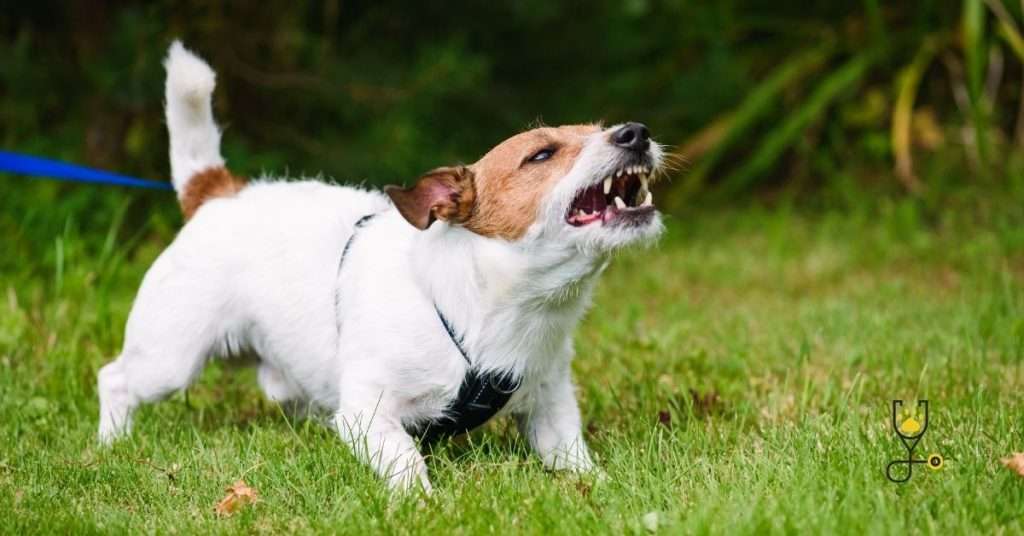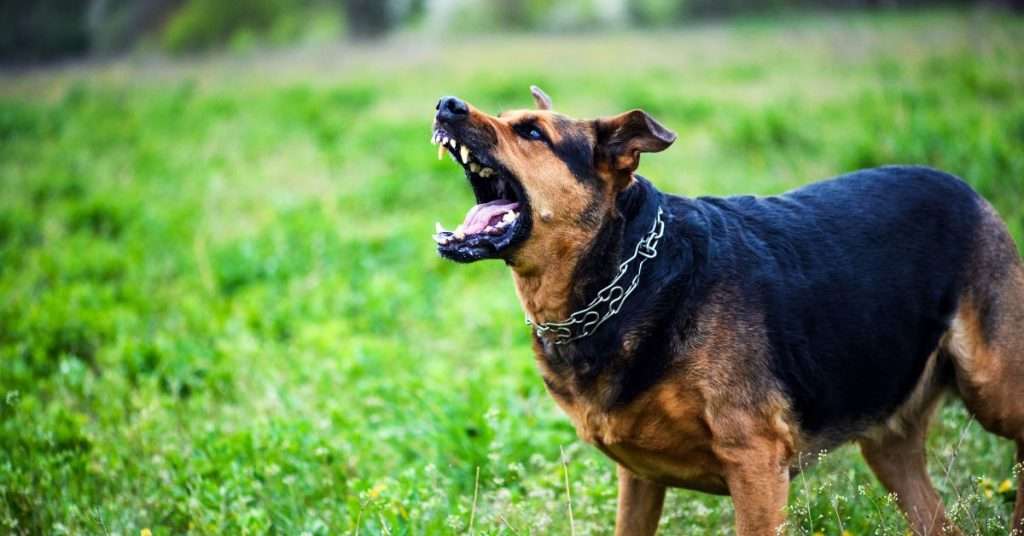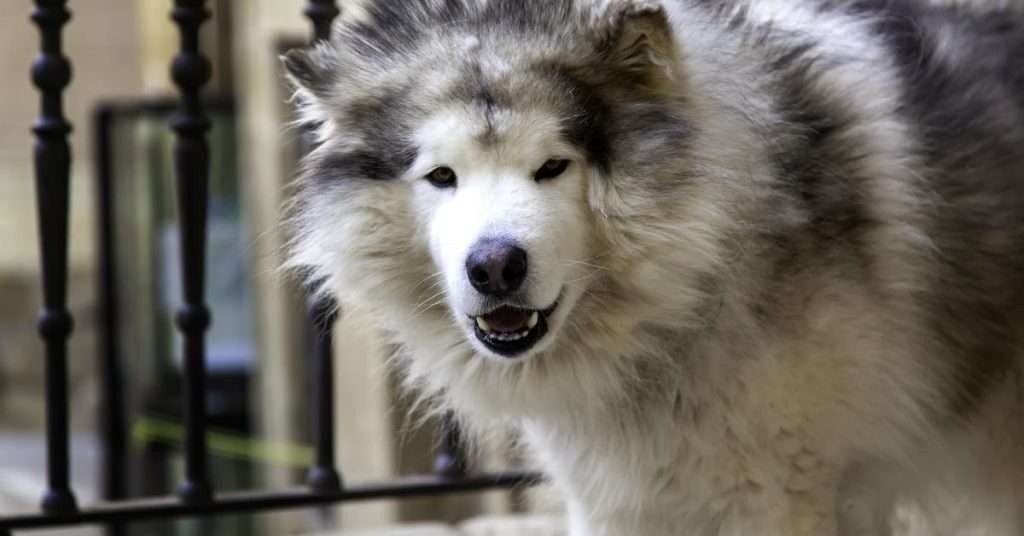If your dog exhibits aggressive tendencies after being neutered, you’re not alone. Many pet owners struggle with this issue. Fortunately, there are ways to help your furry friend overcome this problem. In this post, we’ll discuss some of the causes of aggression after neutering and offer tips for dealing with the behavior. We hope that by reading this article, you’ll be able to help your dog live a happy and peaceful life.

A Dog’s Neutering Surgery Explained
Neutering is the surgical removal of a male dog’s testicles. This common procedure is usually performed when puppies are between six and nine months old. The surgery is relatively quick and straightforward, and most dogs recover from it without any problems.
Testosterone is a hormone that plays a role in many different aspects of a dog’s behavior. It helps to determine a dog’s dominance hierarchy within a pack and can influence aggression levels. When a dog is neutered, the production of testosterone is dramatically reduced. This change can sometimes result in behavioral problems, including aggression.
There are a number of other factors that can contribute to aggression after neutering surgery. For example, some dogs may be in pain or have a reduced tolerance for pain after the procedure. This can make them more irritable and more prone to biting. In addition, the change in hormone levels can be stressful for some dogs, which can also lead to aggression.
Learn More: Help, My Dog Is Suddenly Attacking My Cats!
Does Neutering Change a Dog’s Personality?
It’s important to understand that neutering does not necessarily change a dog’s personality. However, it can have an impact on some aspects of their behavior. For example, a dog who is naturally shy and timid may become even more withdrawn after being neutered. On the other hand, a dog who is already confident and outgoing may become even more so.
There is no one-size-fits-all answer to this question. It really depends on the individual dog and its unique personality.

Myths About a Dog’s Neutering Procedure
There are a number of myths and misconceptions about neutering surgery.
Myth: Neutering makes dogs sad and depressed
Myth: Neutering will make my dog lazy
Myth: Neutered dogs can’t mate
Myth: Neutered dogs can’t have puppies
Myth: Neutering will change my dog’s personality
Myth: Neutering surgery is painful for dogs
All of these myths are completely untrue. Neutering surgery does not cause any long-term emotional problems in dogs. In fact, most dogs seem to recover from the surgery quite quickly and experience no significant side effects.
Read More: How to Make Homemade Dog Food: 5 Important Guidelines
Understanding Aggressive Behavior in Dogs
Aggressive behavior in dogs can be caused by a number of different factors. It’s important to remember that aggression is a normal part of a dog’s behavior and is not necessarily a bad thing.
There are different forms of aggression in dogs, including
Territorial aggression: This type of aggression is usually directed towards strangers or other animals that enter the dog’s territory.
Protective aggression: This type of aggression is usually directed towards people or animals that the dog perceives to be a threat to their owners or themselves.
Possessive aggression: This type of aggression is usually directed towards people or animals that the dog perceives to be a threat to their possessions, such as food or toys.
Fear-based aggression: This type of aggression is usually caused by fear or anxiety. Dogs who are afraid of loud noises, unfamiliar people, or other animals may become aggressive as a way of protecting themselves.
Redirected aggression: This type of aggression occurs when a dog is feeling frustrated or angry, but is unable to direct that frustration or anger towards the source of their frustration. For example, a dog who is restrained on a leash may become aggressive towards another dog or person if they are not able to get away from them.
The Link Between Neutering and Aggression
There is no definitive answer to this question. Some studies have shown that there is a link between neutering and aggression, while other studies have found no significant connection. It’s important to remember that each dog is an individual and will respond to surgery and hormone changes in their own unique way.
If you’re concerned about the potential for aggression after your dog is neutered, be sure to talk to your veterinarian about your concerns. They can help you to understand the risks and benefits of the surgery and make the best decision for your pet.

How to Deal With an Aggressive Dog After Neutering
If your dog is exhibiting aggression after being neutered, there are a few things you can do to help. First, it’s important to consult with your veterinarian to rule out any medical causes of the behavior. Once any underlying medical conditions have been ruled out, you can begin working on behavioral modification.
Read More: The Facts About Vitamin and Mineral Supplements for Dogs
There are a number of different training techniques that can be effective for dealing with aggression.
One common method is called desensitization and counterconditioning. This involves exposing your dog to the things that trigger his aggression in a controlled setting and then teaching him to associate those triggers with positive experiences, such as treats or toys.
It’s also important to provide your dog with plenty of exercises and mental stimulation. A tired dog is a happy dog, and a dog who isn’t given enough to do is more likely to become bored and frustrated, which can lead to aggression.
If you’re struggling to deal with your dog’s aggression on your own, there’s no shame in seeking help from a professional trainer or behaviorist. These experts can help you create a customized plan for dealing with your dog’s aggression and can offer support and guidance throughout the process.
Aggression in dogs is a serious problem that can be difficult to deal with. However, by understanding the causes of the behavior and using positive training techniques, you can help your dog overcome this issue and live a happy, peaceful life.
Check More About Dogs Here: The Ultimate Guide To Dogs Behavior